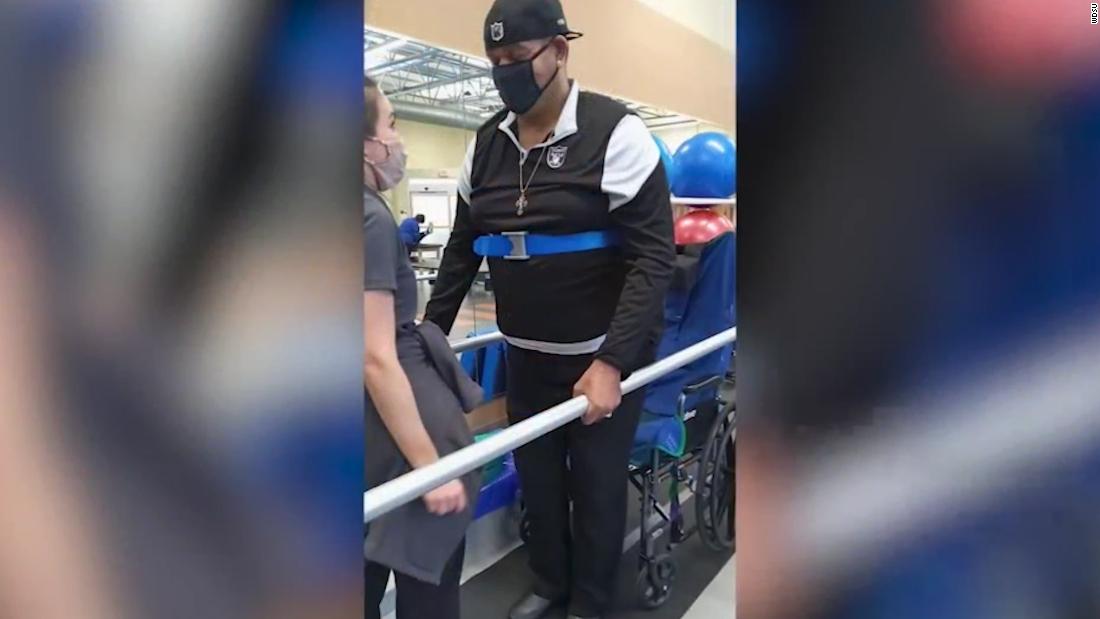| Like this newsletter? Tell your friends to sign up here. And follow all our latest updates.
By Ivana Kottasová and Zamira Rahim, CNN Wednesday, March 31
A World Health Organization (WHO) report into the origins of the coronavirus pandemic said the virus probably spread to people through an animal, and was transmitted among humans no more than a month or two before it was noticed in December 2019.
The long-awaited report was published yesterday, but it immediately sparked more queries and criticism.
The United States and other countries released a joint statement raising questions about the report and calling for independent and fully transparent evaluations. The European Union called for better access for researchers and further investigation.
The report was written by a team made up of 17 Chinese experts and 17 experts from other countries and international bodies such as WHO and the World Organization for Animal Health.
It considered four possible scenarios of how the pandemic started. It said a scenario where the virus spread via an intermediate animal host, possibly a wild animal captured and then raised on a farm, is "very likely." That intermediate host may have been infected with the virus by a bat -- considered the most likely original source -- and then transmitted it to a human, but the report did not identify what animal that could have been.
Another possible-to-likely scenario is direct transmission from one of the animals known to carry a similar coronavirus, such as a bat or a pangolin.
Two other scenarios were considered unlikely. The report says introduction through cold food products is a "possible pathway" and introduction through a laboratory incident was considered to be "an extremely unlikely pathway."
WHO said the report is not the end of the process. "As far as WHO is concerned, all hypotheses remain on the table," the organization's Director-General Tedros Adhanom Ghebreyesus said in a statement. "We have not yet found the source of the virus, and we must continue to follow the science and leave no stone unturned as we do," he added.
For the US, Australia, Canada, the Czech Republic, Denmark, Estonia, Israel, Japan, Latvia, Lithuania, Norway, the Republic of Korea, Slovenia and the United Kingdom, the report was inadequate. The 14 countries said the report was "significantly delayed and lacked access to complete, original data and samples." The European Union issued its own statement, expressing the same concerns in slightly softer language.
THE LATEST NUMBERS Global Cases 128,301,662
Global Deaths 2,805,972 US Cases 30,394,189
US Deaths 550,998
 Source: Johns Hopkins University YOU ASKED. WE ANSWERED. Q Has the WHO ruled out a lab leak? A
The WHO report published yesterday said a scenario where the coronavirus emerged from a laboratory incident was "extremely unlikely."
Former US Centers for Disease Control Director Dr. Robert Redfield has said he thinks this is the most likely scenario, but nothing in the report supports his assertions.
The team that wrote the WHO report also considered research done outside of China that found no evidence that the virus was engineered in a lab. Most independent research points to a natural origin for the virus.
However, the original mission of the WHO scientists was to study the animal origin of the novel coronavirus, which is why the new report does not provide the same depth of detail examining a lab leak. One of the investigators also said they did not do a "true forensic examination of a laboratory." Send your questions here. Are you a health care worker fighting Covid-19? Message us on WhatsApp about the challenges you're facing: +1 347-322-0415. WHAT'S IMPORTANT TODAY Cautiously, Europe starts looking to Russia for vaccines
Europe's vaccination campaign hit another roadblock yesterday after Germany said it would limit AstraZeneca shots to over-60s following reports of rare blood clots. The decision contravenes recommendations from the European Medicines Agency (EMA) and WHO. Both said there seems to be no link between blood clots and the vaccine, and agreed the benefits of the vaccine outweigh the risks.
Europe's vaccination campaign has been slow, mainly due to a lack of shots. That has prompted some leaders to look to Russia for possible help. French President Emmanuel Macron and German Chancellor Angela Merkel discussed possible vaccine cooperation with Russian President Vladimir Putin yesterday. According to a statement by the Elysée in Paris, the prospect depends on the assessment of the Sputnik V vaccine by the EMA. He should be on the frontline of the pandemic response. Instead, he is facing deportation Microbiologist by training, Nigerian by birth, Charles Oti has spent four years working for the UK's National Health Service as an infection control specialist. Oti's skills are in short supply and among the UK government's priorities for recruitment. But instead of taking a position on the front line of the pandemic response, he has been prevented from working and threatened with deportation.
The case represents a personal ordeal and a wider issue. At a time when Britain is heavily reliant on immigrants to staff its essential services, many of these same workers are fighting for their right to remain in the country, Kieron Monks writes. Covid-19 PPE litter is killing wildlife
Waste from personal protective equipment is killing birds, fish and other wildlife across the globe, a study by Dutch scientists has found. Animals are fatally ingesting or becoming entangled in discarded latex gloves and disposable face masks, while others have started building their homes using the same material.
The researchers have so far recorded more than 50 incidences globally where wildlife was harmed, but they warned the actual number is likely to be far larger.  An American robin entangled in a face mask earloop found in British Columbia by Sandra Denisuk. Courtesy: Sandra Denisuk Pfizer/BioNTech says its Covid-19 vaccine is 100% effective in adolescents
Clinical trial results of Pfizer/BioNTech's Covid-19 vaccine showed its efficacy is 100% and it is well tolerated in youths ages 12 to 15, the companies said today. Pfizer/BioNTech plan to submit the data to the US Food and Drug Administration as soon as possible for expanded emergency use authorization of the two-dose vaccine. In a Phase 3 trial of 2,260 participants ages 12 to 15 in the US, the vaccine elicited strong antibody responses one month after the second dose -- exceeding those demonstrated in people ages 16 to 25 in previous trials, Pfizer reported. The vaccine is currently authorized in the US for emergency use in people 16 and older. ON OUR RADAR
TODAY'S Those working from home for a year and counting might run the risk of more pain in the neck and back than usual. But one way to fend off stiffness and aches is to schedule stretching breaks through the day. FROM TODAY'S PODCAST "I am not afraid of death." — Reverend David Sealy
Sealy, a 72-year-old pastor in small-town South Carolina, tells CNN's Thomas Lake about watching Covid spread through his congregation and honoring the dead while trying to stay safe. LISTEN NOW. MORE FROM CNN Dr. Jerome Adams, former US surgeon general and White House coronavirus task force member under President Trump, took to Twitter on Monday to defend Dr. Deborah Birx, the White House's coronavirus response coordinator under Trump. It's been nearly a year since healthcare worker, Peter Woullard, has walked on his own. Unsubscribe | All CNN Newsletters
Want to easily manage your newsletter subscriptions? Create your account.
Access CNN's Coronavirus Resource.
® © 2021 Cable News Network, Inc. A WarnerMedia Company. All Rights Reserved.
One CNN Center Atlanta, GA 30303 |
SUBSCRIBE TO OUR NEWSLETTER
Our Youtube Channel
Top Articles
-
Baird and NWSL general counsel Lisa Levine were ousted Friday in the wake of a rep...
-
A CDC order that went into effect requiring a negative COVID test before flying to...
eseries.in - All Rights Reserved 2023-2025






